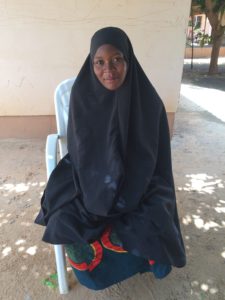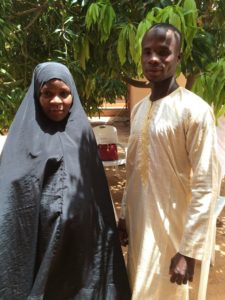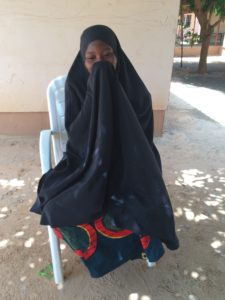Authored by Zoë Connor (Health Research Intern, USAID)
At 18, Fatima looks like any other mother-to-be – excited for her baby to be born and to start a new chapter of her life. Yet this is not Fatima’s first pregnancy. Married young and pregnant by 15, Fatima suffered a prolonged and obstructed labor with her first child that left her incontinent and her child stillborn.

The incontinence Fatima suffered from after her first pregnancy was due to a hole that had formed between her birth canal and bladder called a fistula. Obstetric fistula often forms during prolonged and obstructed labor; as the baby’s head compresses the tissues of the birth canal, blood flow is cut off and the tissue dies, leaving an abnormal opening. This causes the mother to lose control of her bodily fluids, leaving her constantly leaking urine and/or feces. In addition, the formation of a fistula can lead to chronic medical conditions, depression, and isolation, further trapping these women within the cycle of poverty.
Oftentimes a woman with a fistula is abandoned by her husband and family, causing her to suffer through her condition in isolation. The constant leakage of urine causes an unpleasant odor, making it hard for women to integrate back into their villages. Women living with fistula are often ostracized by their peers and forced to live in the background of their community.
Obstetric fistula is largely a product of the lack of access to timely and quality emergency obstetric care in low- and middle-income countries. It is estimated that there are as many as 2 million women suffering from fistula around the globe, with 50,000 to 100,000 new cases developing each year. However, fistula can be easily prevented with ample access to quality obstetric care during the pregnancy and throughout the labor process.
Soon after her fistula had formed, Fatima was able to receive surgical treatment at the Gesse Fistula Center in Kebbi State, Nigeria. A positive example for other couples, Fatima’s devoted husband stayed with her, accompanying her to the treatment center while she awaited surgery.

“Before, the men would just divorce their wives when they developed fistula,” explained Jummai, the former Nurse Matron of the Gesse Fistula Center. “Now because of outreach and enlightenment in the communities, they will come with them to the facility.”
Many of these community engagement projects in Nigeria have been implemented by Dr. Abubakar Bawa, a local obstetric surgeon. Searching for a way to increase the number of men who accompany and support their wives at treatment centers, Dr. Abubakar aimed to “change the architecture of disseminating the information around obstetric fistula.” His education model focuses on engaging religious leaders and other community members who are highly respected within the village to educate their fellow neighbors on information about obstetric fistula, including how they can be treated, free of cost, at multiple treatment centers throughout Nigeria.
After receiving surgery, Fatima and her husband were educated on proper post-surgical care, emphasizing that if she were to get pregnant again it would be imperative that she schedule a Caesarean section to give birth. Elective C-sections are important for women who have previously had an obstetric fistula so as not to further damage their repaired birth canal while in labor. Now nine months pregnant, Fatima, accompanied by her husband and grandmother, awaits her elected C-section. She loves children and is excited to give birth safely to a healthy baby at the facility.

About the Author: A senior at the College of William and Mary, Zoë Connor was the Health Research Intern for the Maternal and Child Health and Nutrition team at USAID. She studies Public Policy with a focus in Public Health and is especially interested in the relationship between poverty and inequality, looking specifically through the lens of health indicators. While with USAID, she focused primarily on post-abortion care and obstetric fistula.


